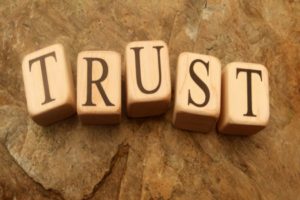One of the great things about living in the Midwest is that you experience four distinct seasons. Spring “officially” began March 21st with the vernal equinox, but Spring doesn’t really start until you get to work out in the yard. I truly enjoy working out in my yard. It’s a chance to listen to music with my ever present iPod (old school), clear my head with any of life’s pressures, and get my hands dirty working in the beds.
So, this weekend Spring officially began at my house. There was a forecast for warmer weather without rain for a few hours. I put on some clothes that I knew would get dirty, slapped in my earbuds and hit “play”. As Your Gold Teeth by Steely Dan started playing, I jumped into action. It was fantastic !! I moved from the front beds, to the side beds to the beds that serve as a perimeter to our back porch. There was a mixture of tasks ranging from picking up dead leaves, destroying weeds and removing the dead growth from plants just starting to turn green and reemerge.
Then, the lawn. I’m kind of old school on some things including walking behind my mower to cut the 1/2 acre lot I live on. As I get older, the yard seems to get a bit larger and a little more challenging to complete. However, it’s normally the best 1 1/2 to 2 hours I have every week. Exercise mixed with some sweat and tunes. Almost perfection.
 There’s one thing to note that happens after the first cut of the season. The grass now has the okay to grow once again. A bit of trimming stimulates the innate nature of the lawn and growth is rekindled. I don’t know the science behind this, but the action which you’d think would be detrimental to a living organism, is exactly the opposite. It’s the stimulus it needs in order to fulfill its purpose !!
There’s one thing to note that happens after the first cut of the season. The grass now has the okay to grow once again. A bit of trimming stimulates the innate nature of the lawn and growth is rekindled. I don’t know the science behind this, but the action which you’d think would be detrimental to a living organism, is exactly the opposite. It’s the stimulus it needs in order to fulfill its purpose !!
Have you looked around the “lawn” at your workplace lately? How does it appear? Is it dormant or eager to grow? Is your focus on the entire environment where you work?
Too often HR is stuck in the weeds – literally. We spend so much of our time on the exceptions of the people we have the privilege to coexist with that we never feel we even have time to tend to anything else. This is a mistake and we need to change our focus. We have the chance to put on our work clothes and interact with every department just like my lawn and flower beds. We can remove the clutter and unnecessary items that keep people from performing. We can make sure that everything has room to blossom and spread out. And finally, we can “cut the grass” and stimulate employees to no longer remain dormant and stuck in their ways.
The question is, where do you spend your time now? I choose to be the HR person who works the land and encourages it to flourish !! At the end of this weekend’s yard session, I was spent. In fact, I came inside and washed up before collapsing into a deep nap on the sofa. That same sense of giving all I have to make employees and the workplace thrive is something that I strive to do on a regular basis.
How about you? Ready to make the first cut of the year? Put in your earbuds, hit play and let’s go !!









